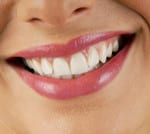 Tooth grinding, also known as bruxism, can have negative implications for your health, as well as the quality of your sleep, but thankfully, we have some excellent solutions at the ready. If your partner is complaining about you grinding your teeth or you regularly wake up with symptoms such as headaches or jaw pain, call us today!
Tooth grinding, also known as bruxism, can have negative implications for your health, as well as the quality of your sleep, but thankfully, we have some excellent solutions at the ready. If your partner is complaining about you grinding your teeth or you regularly wake up with symptoms such as headaches or jaw pain, call us today!
What causes tooth grinding?
There are several possible causes of tooth grinding, but most cases are linked to stress and anxiety. Other possible causes include loose fillings and orthodontic issues. It is not fully understood why feeling anxious or worried makes you grind your teeth, but research suggests that if you are feeling stressed, have a high pressure job or have character traits such as being highly-strung or a perfectionist, you are more likely to grind your teeth. Most people grind their teeth without even knowing it, as it occurs while you sleep.
What are the effects of tooth grinding?
Tooth grinding has various implications for your oral and general health. Grinding and clenching the teeth can contribute to tooth wear and damage and you may also find that you wake up with headaches, pain, stiffness in the jaw and dental pain. Grinding your teeth can also disrupt your sleep patterns, which may make you feel tired during the day.
Dealing with tooth grinding
If you’re struggling with tooth grinding, we recommend wearing a bite guard during the night. A bite guard is a custom-fitted device designed to protect your teeth by providing a barrier between the upper and lower arches of teeth while you sleep. With the guard in place, there is no risk of the teeth clashing together and you can enjoy a peaceful night’s sleep and wake up without any pain. We can also offer advice to help our patients cope with stress.












